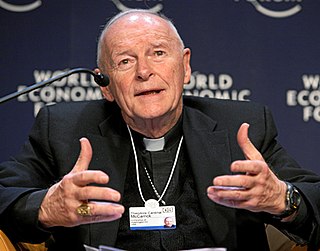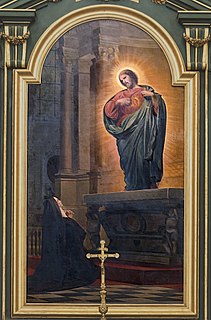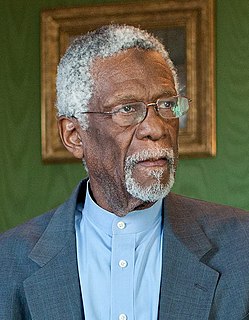A Quote by Mark Strand
A poem is a place where the conditions of beyondness and withinness are made palpable, where to imagine is to feel what it is to be. It allows us to have the life we are denied because we are too busy living. Even more paradoxically, poetry permits us to live in ourselves as if we were just out of reach of ourselves.
Related Quotes
The flesh is what traps us, because no one has ever chosen his or her body to live in, has he? It's the flesh that makes us sick, that makes us old and that eventually ends up killing us. But at the same time, it's that glorious flesh that enables us to scratch heaven through sensuality, through passion. Paradoxically, the flesh that kills us will also make us feel eternal for a brief moment because that's what we are in passion, eternal - we abandon ourselves, we give ourselves to the other, so much that when we are loving passionately, death doesn't exist.
We definitely needed to spend a good solid year just finding ourselves before anyone would even notice us. We had our fan-base growing around here in Los Angeles, but I wouldn't even have wanted anyone to come out to see us that was from a record label or something like that at that time, because we really needed to feel ourselves out as a live band.
If it were not for the Eucharist, if it were not for this marvelous manifestation of God's love, if it were not for this opportunity to place ourselves in the very real presence of God, if it were not for the sacrament that reminds us of His love, His suffering and His triumph, which indeed perpetuates for us His saving sacrifice on the cross, I am sure that I could never face the challenges of my life, my own weakness and sinfulness and my own need to reach out to the Living God.
Energy-fire experiences take us into ourselves only that we might reach outside of ourselves. Metanoia is a de-centering experience of connected-ness and community. It is not an exercise in reciting what Jesus has done for me lately. Energy-fire ecstasy, more a buzz than a binge, takes us out of ourselves, literally. That is the meaning of the word 'ecstatic.'
That's one of those questions that would just love to have a pat answer. You know, poetry's job is to make us feel good. Poetry exists to allow us to express our innermost feelings. There isn't one role for poetry in society. There are many roles for poetry. I wrote a poem to seduce my wife. I wrote a poem when I asked her to marry me. Poetry got me laid. Poetry got me married.
Life is made up of moments, small pieces of glittering mica in a long stretch of gray cement. It would be wonderful if they came to us unsummoned, but particularly in lives as busy as the ones most of us lead now, that won’t happen. We have to teach ourselves how to make room for them, to love them, and to live, really live.
When we believe that we ought to be satisfied, rather than God glorified, we set God below ourselves, imagine that He should submit His own honor to our advantage; we make ourselves more glorious than God, as though we were not made for Him, but He made for us; this is to have a very low esteem of the majesty of God.
Some of us have a hard time believing that we are actually able to face our own pain. We have convinced ourselves that our pain is too deep, too frightening, something to avoid at all costs. Yet if we finally allow ourselves to feel the depth of that sadness and gently let it break our hearts, we may come to feel a great freedom, a genuine sense of release and peace, because we have finally stopped running away from ourselves and from the pain that lives within us.
All of us--all who knew her--felt so wholesome after we cleaned ourselves on her. We were so beautiful when we stood astride her ugliness. Her simplicity decorated us, her guilt sanctified us, her pain made us glow with health, her awkwardness made us think we had a sense of humor. Her inarticulateness made us believe we were eloquent. Her poverty kept us generous. Even her waking dreams we used--to silence our own nightmares.







































